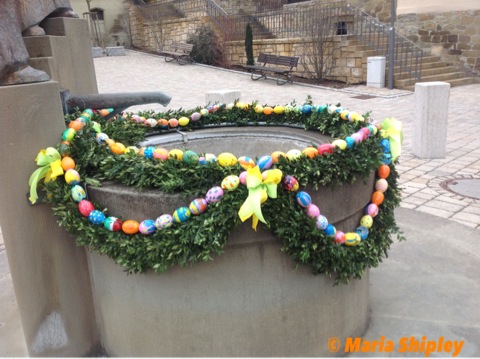Social Media in Germany is full of debates again about our Good Friday (Karfreitag) rules, and what we can do and not do. In general, Good Friday is just one of a few public holidays, when silence needs to be observed. See Wiki for a list of ‘Quiet Holidays in Germany’.
The quiet days vary from state to state, and the state of Berlin seems to be the most relaxed about its Feiertagsruhe.
The following public places will be closed to observe this rule of silence:
Discos, clubs, sport events, open markets, circuses, fairs, theatres, opera houses, game centers, promotional events;
On a personal level, you may not:
- Dance to any kind of music in the public
- Wash your car
- Move to another location
… and if you are in Bavaria, you should most definitely not air out your bedding on Good Friday.
On a personal note, many years ago, we had traveled to northern Bavaria to visit my side of the family. We stayed at my brother’s house, and I saw the need for a good shake of the bedding which had not been used for many months. A neighbor chided me from across the street, “Maria, das macht man doch nicht am Karfreitag! Das bringt den Tod ins Haus!” (Don’t do this on Good Friday, it will bring death into your home!) I gave the bedding a final shake, and brought it in.
This was so strange after having just moved here from a country like Japan, where so many things are 24/7, and religious beliefs become a medley on holidays anyway.
There is little more contradictory than superstitious beliefs from pious country folk on Good Friday.









